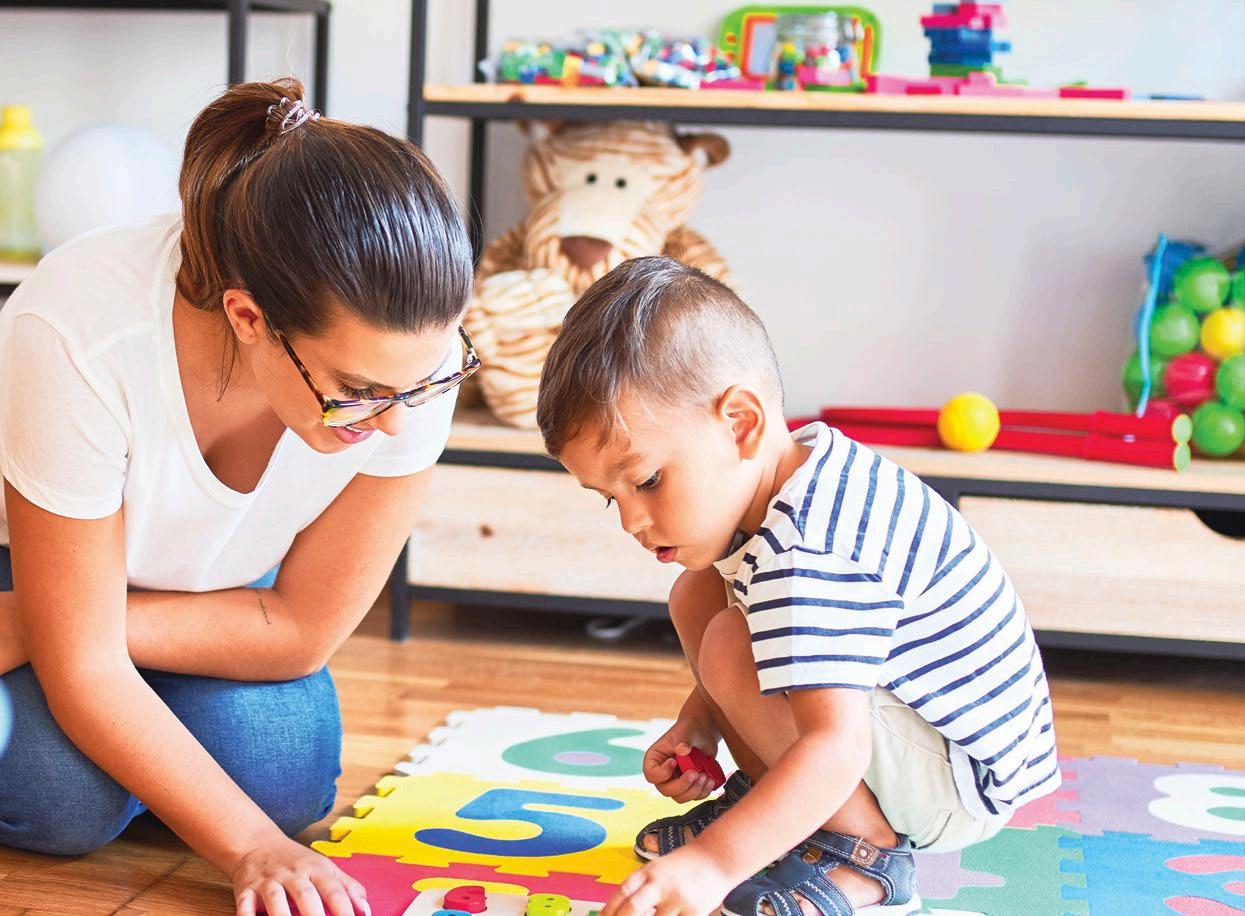
3 minute read
Promoting play – Role Emerging Occupational Therapy
Occupational therapy as defined by WFOT (2012) is a client-centred health profession, of which the primary goal is to promote engagement in meaningful occupations for wellbeing (Reed, 2018). As fourth-year bachelors students at the University of Canberra, we value how holistic occupational therapy can be, and were excited to embark on our first community role emerging placement (REP). The placement was situated within an early childhood research project with the community. The role was to engage with early childhood educators and caregivers of young children (0-5 years) to support their healthy development, aiming to reduce their vulnerability and health inequity. The key approach was to do this by encouraging pretend play.
REPs occur when students are situated in a work environment that does not already employ an occupational therapist. Our placement was an opportunity to work directly with clients and understand the challenges they were experiencing in their current situations, and view these through an occupational lens. The nature of the REP meant that there was not a strongly established occupational therapy presence
Promoting play
Role Emerging Occupational Therapy
Olena Narovska and Nourah Brown OT students from the University of Canberra
working with the community, there were many opportunities for us to immerse ourselves in the work and take the lead in making suggestions to our team.
Our unique approach to understanding and working with the clients helped us to work within a multidisciplinary research team and promote holistic practice. We developed great initiative in promoting occupational therapy, as many of the community members we spoke to did not have a good understanding of what occupational therapy is. REP provided a fantastic opportunity for both the community and ourselves to learn about the potential that occupational therapy has in making a positive impact on people’s lives.
We began by promoting pretend play at an early childhood education centre (ECEC) by setting goals with the early childhood educators. We used coaching and modelling approaches to promote loose parts play, to increase the pretend play of children in the ECEC rooms. The exciting part of this placement was connection to the community. Complementing our engagement with the ECEC, we also helped facilitate playgroups in a shopping mall! A play area was set up that supported interaction between caregivers and children as well as pretend play. We found this approach to promoting health and wellbeing in the community amazing, and a valuable new emerging role for occupational therapy.
In the second week of our placement, Canberra went into lockdown. What started as a one-week lockdown eventually spanned the rest of our placement. The lockdown changed our work journey and we quickly adapted to a virtual platform. We had to connect with some new stakeholders, such as early childhood educators who were running community playgroups online via a Facebook page. With support from our supervisor and colleagues, we also reconsolidated relationships and rebuilt rapport with the ECEC. We have had many positive outcomes since we started
working from home, including developing online resources and creating engaging presentations and resources to support caregivers and early childhood educators during lockdown. The aim of these resources was the same as it was pre-lockdown: To build the knowledge and understanding of caregivers to support children’s engagement in pretend play for healthy development.

Interestingly, lockdown had a powerful impact on our perception of occupational therapy. We recognised that we, as soonto-be occupational therapists, had a unique understanding of the way the environment could affect people and their occupations, and the impact on their wellbeing. Personally, we felt the effects of lockdown on our regular occupations, too. The powerful message is that occupational
therapy plays a vital role in the community as this profession can understand, rebuild and empower communities to engage and develop in ways that are meaningful to them, and thereby promote health and wellbeing in children and adults.
About the authors Olena Narovska and Nourah Brown are fourth-year Bachelor of Occupational Therapy students from the University of Canberra, who completed their final placement in August-September 2021.
References can be viewed by scanning the QR code








